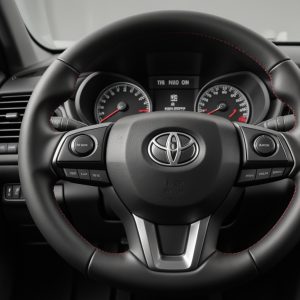Understanding the origins
When it comes to the automotive industry, the relationship between Lexus and Toyota has often sparked curiosity and debate.
Many wonder: Is Lexus simply a division of Toyota, or is there more to the story?
To comprehend this intricate relationship, it’s crucial to delve into the origins of Lexus. The luxury vehicle division of Toyota Motor Corporation, Lexus, was introduced to the market in 1989. It was a strategic move by Toyota to enter the premium automotive segment and compete with established luxury brands.
The toyota connection
While Lexus operates as a separate brand, it is undeniably linked to Toyota. In fact, Lexus vehicles share numerous components and technologies with their Toyota counterparts. This includes engines, platforms, and various other mechanical elements.
Furthermore, Lexus vehicles are often manufactured alongside Toyota models in the same facilities. This integration highlights the synergy between the two brands within the Toyota Motor Corporation umbrella.
Distinguishing features
Despite the shared elements, Lexus maintains its distinct identity in several key aspects. One notable difference lies in the design and craftsmanship of Lexus vehicles. Renowned for their luxury, refinement, and attention to detail, Lexus cars often feature upscale materials and innovative amenities.
Moreover, Lexus prioritizes a superior driving experience, emphasizing comfort, performance, and advanced technology. These characteristics contribute to the brand’s reputation for luxury and excellence.
Market positioning
While Toyota appeals to a broad spectrum of consumers with its diverse lineup of vehicles, Lexus targets a more affluent and discerning clientele. The pricing of Lexus models reflects this positioning, with higher price points compared to equivalent Toyota vehicles.
By catering to different market segments, Toyota and Lexus effectively maximize their market share and appeal to varying consumer preferences.
Brand perception
The association with Toyota has both advantages and challenges for Lexus. On one hand, being part of the Toyota Motor Corporation lends credibility, reliability, and the backing of a reputable automotive giant. On the other hand, some consumers may perceive Lexus as merely a premium extension of the Toyota brand, potentially overlooking its unique attributes.
Nevertheless, Lexus has managed to carve out its niche in the luxury automotive market, earning accolades for its quality, innovation, and customer service.
Conclusion: a unique identity within the toyota family
In conclusion, while Lexus is technically a division of Toyota, it operates as a distinct entity with its own identity, design philosophy, and target audience. Despite sharing components and manufacturing facilities with Toyota, Lexus vehicles offer a level of luxury, performance, and sophistication that sets them apart in the automotive landscape.
Ultimately, the relationship between Lexus and Toyota is a symbiotic one, with each brand benefiting from the strengths and resources of the other while maintaining its individuality and market positioning.




